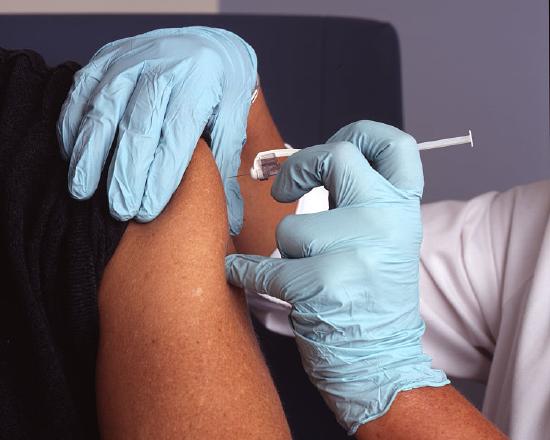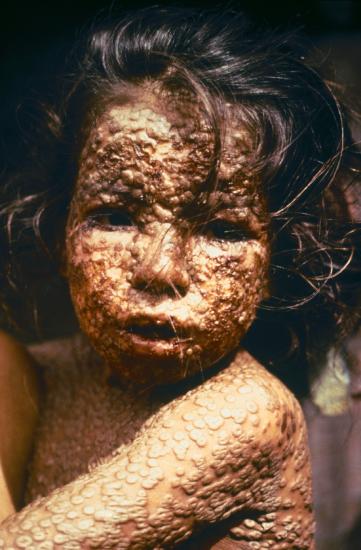1.5: What Is Scientific discipline?
- Page ID
- 30598
This individual in Visualize \(\PageIndex{1}\) is getting a flu vaccine. You likely know that getting a vaccine keister hurt, but it's usually worth it. A vaccinum contains dead or modified forms of "germs" that normally cause a disease, such As flu or morbilli. The germs in vaccines ingest been inactivated or dilute so they can no more drive illness, just they are still "detected" by the immune system. They stimulate the immune organization to produce chemicals that can kill the actual germs if they come in the body, thus preventing future disease. How was much an ingenious way to prevent disease discovered? The short answer is Thomas More than two centuries of science.

Science as Process
You May think of science as a enceinte and elaborate body of knowledge, but science is actually more of a process than a set of facts. The real focus of science is the accrual and revision of scientific knowledge. Science is a special right smart of gaining knowledge that relies along evidence and system of logic. Evidence is used to unendingly test ideas. Through metre, with repeated evidence assembly and testing, knowledge base knowledge advances.
We've been accumulating knowledge of vaccines for more than two centuries. The discovery of the first vaccine, equally substantially as the procedure of vaccination, dates back to 1796. An European country doctor named Edward Jenner observed that people who became septic with cowpox did not get sick from smallpox, a similar but much more virulent disease (Figure \(\PageIndex{2}\)). Jenner decided to air vaccinia to a young child to see if IT would protect them from variola. He gave the minor cowpox by scratching liquid from cowpox sores into the child's skin. Then, six weeks later, He scratched liquid from smallpox sores into the child's skin. As Edward Jenner expected, the child did not get sick from variola major. Jenner had discovered the first vaccine, although additional examination was needed to show that information technology really was effectual.

Almost a hundred passed ahead the next vaccinum was discovered, a vaccine for cholera in 1879. Just about the unvaried time, French chemist Louis Pasteur found convincing tell apart that many human diseases are caused by germs. This earned Pasteur the title of "Father of microbe hypothesis." Since Pasteur's time, vaccines have been discovered for scores of additive diseases caused by "germs," and scientists are currently researching vaccines for many others.
Benefits of Skill
Medical advances such as the discovery of vaccines are one of the most important benefits of skill, but science and scientific cognition are also crucial for nigh other frail endeavors. Science is required to design safe cars, prognosticate storms, control global warming, develop new technologies of many kinds, help couples have children, and put humans along the moon! Clear, the diversity of applications of scientific knowledge is vast!
Review
- Explain wherefore science is more accurately well-advised a process than a body of knowledge.
- Commonwealth three specific examples of human endeavors that are based on scientific noesis.
- Jenner used a young boy arsenic a research subject in his variola vaccine research. Today, scientists must follow severe guidelines when exploitation human subjects in their research. What unique concerns doh you guess might rebel when fallible beings are in use as research subjects?
- What gave Edward Jenner the idea to develop a vaccine for smallpox?
- Why do you think almost a century passed between the development of the first vaccine (for smallpox) and the development of the next vaccine (for cholera)?
- How does science influence your daily life?
science is a body of which type of knowledge
Source: https://bio.libretexts.org/Courses/Community_College_of_Vermont/Human_Biology_(Gabor_Gyurkovics)/01%3A_Introduction_to_Human_Biology_and_the_Scientific_Method/1.05%3A_What_Is_Science%3F
